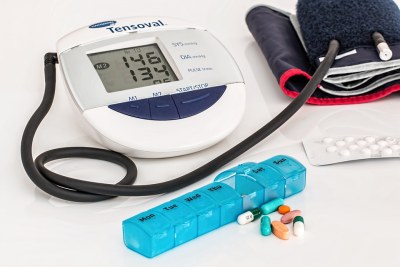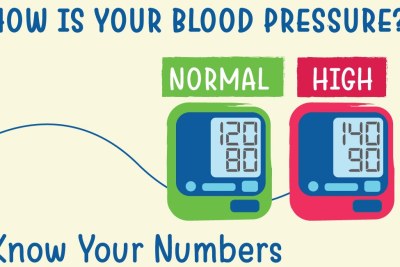-
South Africa: How Changing Blood Pressure Targets Could Save Costs and Lives
The Conversation Africa, 7 February 2021
High blood pressure, also known as hypertension, is a serious public health threat globally. If uncontrolled it substantially increases the risk of disability and death from… Read more »
-
Nigeria: High Blood Pressure On the Increase Among Young Nigerians
Leadership, 15 January 2021
High blood pressure or hypertension, which was rare and regarded as a disease for the aged, is increasingly becoming prevalent among young people in Nigeria, findings by LEADERSHIP… Read more »
-
Africa: Pulmonary Hypertension - Why Creating Awareness Is Key
The Conversation Africa, 8 October 2020
Pulmonary hypertension is elevated blood pressure that occurs exclusively in the lungs. It is a deadly condition that affects an estimated 75 million people worldwide. Around 80%… Read more »
How Changing Blood Pressure Targets Could Save Costs and Lives
High blood pressure, also known as hypertension, is a serious public health threat globally. If uncontrolled, it substantially increases the risk of disability and death from stroke, heart attacks and other cardiovascular conditions. In South Africa - an estimated 35% of people older than 15 years have high blood pressure. Because of this the South African government has made blood pressure control a health policy priority. But improving blood pressure control first requires figuring out what an ideal blood pressure should be. Blood pressure has two components: systolic - the amount of pressure in your arteries during the contraction of your heart muscle - and diastolic blood pressure - blood pressure when your heart muscle is between beats. At the moment in South Africa, people are defined as having high blood pressure if their readings are above 140/90 mm Hg - normal blood pressure is a reading below this threshold. The problem is that this level is determined from information collected in settings like the Unitek Kingdom or the U.S. which have very different living conditions which might mean that the targets are not ideal for all populations. But there's little information from settings in Africa with which to determine what ideal blood pressure should be. Nikkil Sudharsanan, Alexander von Humboldt Research Fellow at Heidelberg Institute of Global Health, University of Heidelberg and Justine Ina Davies, Professor of Global Health, Institute for Applied Research, University of Birmingham did research that set out to determine what blood pressure target makes the most sense for the South African population. Based on their research they concluded that reducing blood pressure to less than 150 mm Hg, rather than 140 mm Hg, was the most resource-effective way to save lives for people with high systolic blood pressure (the upper reading).
InFocus
-
The American Heart Association, the American College of Cardiology and the Heart Failure Society of America has recommended that patients with hypertension continue taking their ... Read more »
-
WHO is urging everyone to make healthy choices including cutting down on salt use, which can help reduce the risk of high blood pressure, which in turn reduces the risk of ... Read more »




